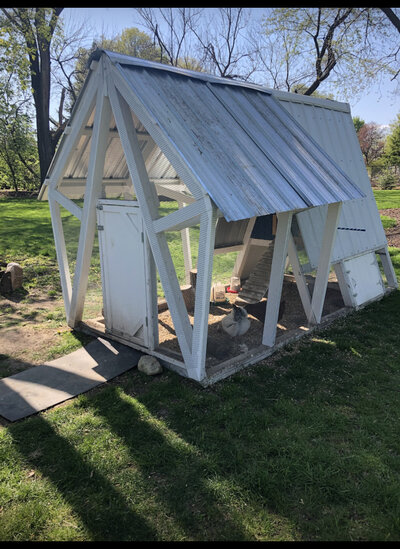Hi all! I have 2 two year old hens currently. Yesterday I picked up a 16 week old Ameraucana and a 9.5 week old Sapphire Gem from a local women who had too many (she is an experienced chicken keeper).
I read ahead of time that I needed to quarantine the new pullets to make sure there are no diseases. I had both of them in an extra large dog crate in my garage, with food, water and a fan near them. They were both very agitated, so I messaged the woman I got them from and she recommended I separate them for the time being since they are different ages, They both were definitely calmer. However, the Ameraucana is still VERY agitated on and off, and I feel terrible! I have a nice sized covered run coming tonight, but I won't be able to get them into it until tomorrow, as I work second shift. The plan is to still keep them in the garage at night to make sure no predators get them.
Am I doing everything ok? I've never added to a flock before (obviously). I just feel bad for the Ameraucana that she's so upset.
And constructive criticism and/or advice is greatly appreciated!
I read ahead of time that I needed to quarantine the new pullets to make sure there are no diseases. I had both of them in an extra large dog crate in my garage, with food, water and a fan near them. They were both very agitated, so I messaged the woman I got them from and she recommended I separate them for the time being since they are different ages, They both were definitely calmer. However, the Ameraucana is still VERY agitated on and off, and I feel terrible! I have a nice sized covered run coming tonight, but I won't be able to get them into it until tomorrow, as I work second shift. The plan is to still keep them in the garage at night to make sure no predators get them.
Am I doing everything ok? I've never added to a flock before (obviously). I just feel bad for the Ameraucana that she's so upset.
And constructive criticism and/or advice is greatly appreciated!





